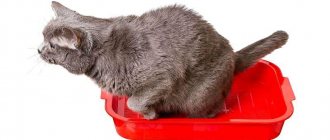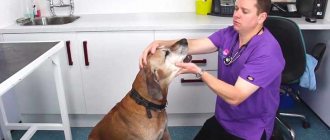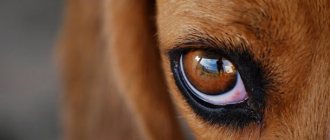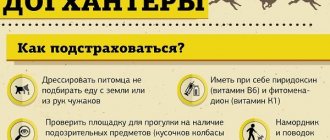When it comes to your pet's health, sometimes the proof is in the stool. Most pets schedule a visit to the vet if their pet's stool suddenly changes in size or consistency. But what about when your dog has black poop? Is black dog poop normal or a cause for concern?
It is extremely important to be aware of the consistency and color of your dog's stool for the sake of its health. Although your dog can't tell us verbally what's wrong with him, by watching you can read the signals if a health problem is occurring. If your dog begins to pass black, tarry stool, this indicates the presence of digested blood in the stool. For stool to turn black, there must be a significant amount of bleeding into the stomach or small intestine. Note that bleeding into the colon or rectum (hematochezia) appears as fresh blood in the stool. Any amount of internal bleeding is a serious concern.
Causes
Alas, the most common causes of black excrement are diseases. It is important to know that two types of blood can be present in stool. Bright red and dark black. The latter is the most dangerous, as it comes out of the small intestine or stomach.
What are the main causes of black stool in dogs?
- Worms. If you forget that periodically they need to be expelled from the dog’s body, then these comrades will only be happy. They settle safely in the small intestine. And they begin to eat its mucous membrane. Naturally, they eat away until they bleed. This very blood leaves the dog’s body, giving its excrement a black color;
- Enteritis. This is much more serious than worms. Let's start with the fact that there are two types of enteritis. Hemorrhagic gastroenteritis and parvovirus enteritis. Small breed dogs are prone to the former. Inflammation occurs in the stomach and intestines, and black feces in dogs are its consequence. The causes of this disease are not yet known. Either it’s stress that has this effect on the body, or a previous infection, or problems with blood circulation. The second type of enteritis is very dangerous for puppies and young dogs. If measures are not taken in time, the animal dies within 3 days;
- Stomach ulcer. Dogs, like people, have peptic ulcers. When the ulcer opens, it begins to bleed. As a result, the owner can see black feces in the pet;
- Foreign object in the gastrointestinal tract. It happens. The dog swallows something sharp, and this is the result. By the way, for this reason it is forbidden to give chicken tubular bones to your pets. And if the owner plays “stick” with the dog, he should be especially careful so that the pet does not swallow a sharp piece of the stick.
White stool
The white color of feces, first of all, indicates tumor formations in the liver, gall bladder or digestive organs. Such excrement may indicate the following disorders in the body:
- Malignant tumors of the liver or gallbladder disrupt the normal flow of bile.
- Inflammation of the pancreas (pancreatitis).
- Inflammation of the liver and bile ducts (cholangiohepatitis, cholangitis).
- Inflammatory process in the liver (infectious and toxic hepatitis).
- Liver failure with threat of liver cirrhosis.
- The formation of cystic nodes in the liver and disruption of the functions of this important organ.
- Changes in the gallbladder - its deformation, reduction in size.
- Excessive consumption of foods with high fat content (pork, sour cream) or other unusual foods. In the absence of other symptoms (vomiting, abdominal pain, apathy), it is allowed to monitor the dog’s stool for one day before going to the clinic, provided that the owner is sure that the origin of the white feces is due to an error in the diet.
Symptoms of certain diseases
We found out why a dog might have black feces. Now you have to deal with additional symptoms of some diseases.
Let's take worms. A dog infected with them is lethargic. Her eyes are cloudy, the pet refuses to walk and play. But the appetite is just crazy. The dog eats everything he sees. She is constantly hungry. What should the owner do? Buy deworming tablets and give them to your dog.
Viral enteritis. This is an infectious disease, and you can protect your puppy from it by getting vaccinated. Just remember: vaccination is not a panacea for all ills. It is also important to comply with the conditions of content. For example, the dog is fed correctly, and has a separate place for rest. It started snowing, and the owners were walking with the puppy at that time. And they walked for a long time. The baby is wet and his immune system is weakened. And hello, enteritis.
How does it manifest itself, besides the fact that the dog has black stool? The animal vomits, the feces are speckled with blood clots. The dog is lethargic and lies all the time. She may have seizures. Refuses to eat and drink.
What measures should the owner take? We remember that infection very quickly destroys the puppy. Therefore, you need to urgently call a veterinarian. Treatment is usually carried out at home. This is the placement of IVs. The sooner treatment begins, the higher the pet's chances of survival.
In case of gastric bleeding, the owner’s best decision would be to call a veterinarian.
If a foreign object gets into your pet’s gastrointestinal tract, know that the condition worsens very quickly. Don't hesitate to visit a veterinarian.
When to contact a veterinarian
You should contact a veterinarian in two cases: when your pet’s condition quickly deteriorates and emergency care is needed, or when all measures taken are ineffective. Veterinarian's opinion. In fact, the owner can only give such small dogs Smecta or Polysorb a drink against diarrhea. A non-specialist will not be able to dose all other medications correctly - the dog’s weight is too small. In these cases, it is much more important to assess the extent of the disease and the need to go to the clinic. Such babies, with more or less serious illnesses accompanied by diarrhea, simply cannot be pulled out without droppers that restore the balance of fluid in the body, antibiotics, antispasmodics and restoratives. But the owner will not be able to provide such treatment at home. The smaller the dog, the faster intoxication and dehydration increases. This rule also works for puppies of absolutely all breeds. Symptoms for which you should immediately contact a veterinary clinic: Persistent, repeated (more than 2 times per day) vomiting and/or diarrhea. No improvement in well-being within 2 days and/or continued deterioration of the condition. High, fluctuating body temperature. An admixture of blood and bile in vomit and feces. Unnatural coloring of vomit, feces and urine, as well as an unnatural odor from them. Severe lethargy and weakness, unnatural reaction to light (hypersensitivity to light, photophobia). Addition of additional symptoms: convulsions, loss of coordination of movements, changes in breathing.
How are the causes of diarrhea identified?
A veterinarian in a clinic has much more opportunities to make the correct diagnosis than if he examined the dog during a house call. Often, to differentiate the diagnosis, not only anamnesis and examination is required, but also laboratory diagnostics, sometimes radiography with a contrast agent, and functional tests. Collecting an anamnesis allows you to find out how the dog is kept, what it usually eats, whether it has preventive vaccinations, how long it has been sick, and whether it is allergic to anything. Laboratory tests will allow you to assess the general condition of the animal and confirm or refute the presence of an infectious disease. Analysis of feces for worm eggs determines which parasites the pet is suffering from. An X-ray with a contrast agent shows the presence of foreign bodies in the gastrointestinal tract. Functional tests are needed to evaluate the functioning of certain organs. In case of diarrhea, this is often the way to check the functioning of the pancreas. The veterinarian will decide which methods to use in order to obtain the most detailed information and offer them to the owner with all the necessary explanations. Remember! By contacting a veterinarian in a timely manner, you will not only increase the chances of your pet’s recovery, but also significantly reduce your expenses “in the future” for veterinary needs, because Timely treatment almost always avoids complications of the disease.
Preventive measures
How to treat black feces in a dog? It all depends on the type of disease. If it is serious, then antibiotics and IVs are used. In this case, only a veterinarian can prescribe treatment.
Frightening poop is easier to prevent than to treat later. How to do it? Listen to our recommendations:
- Do not feed your pet raw offal frequently. You can give it occasionally. It’s better to boil them, it will be calmer;
- Give anthelmintics on time. Once a quarter is best. The specialist who is seeing the dog will tell you which tablets are suitable for your pet;
- vaccinate your pet. Other owners believe that only a rabies vaccination is necessary. This point can be disputed. The infectious diseases described above have not yet been canceled;
- If you notice that your dog is behaving strangely, do not put off visiting a doctor. Just yesterday your pet was active, but today he’s lying down and breathing heavily? You should not hesitate to seek medical help in this case;
- When playing with your pet, be careful. Make sure he doesn't swallow the sharp edge of the stick;
- Don't give your dog long bones. Never and under any circumstances. If you want to pamper your dog, give him a beef sugar bone with rounded ends.
Prevention of gastrointestinal disorders
The basis for the prevention of gastrointestinal disorders is proper balanced nutrition according to the daily routine. Various human “goodies” are unacceptable. For training, it is better to use treats that you prepare yourself - boiled and finely chopped cow tripe or heart. Also, you should not let your dog pick up things on the street that it finds attractive. This can be leftovers, corpses of birds or rats/mice, bait with poison for rodents, etc. Sometimes it can be bait with poison for dogs - the work of dog hunters. The second important aspect of the prevention of gastrointestinal diseases (and not only) is timely preventive veterinary measures, such as deworming (getting rid of internal parasites), disinsection (getting rid of insects that parasitize the coat) and vaccination (prevention of the most common infectious diseases). Not a single dog has ever escaped diarrhea in its life. Most often, these are ordinary “not scary” gastrointestinal disorders, which can be easily eliminated by a 1-day fast and a packet of Smecta. But there are also really serious ailments that require the intervention of a specialist. Watch your pet and its general condition, because only the owner knows his dog enough to suspect something is wrong in time.
How to treat?
Warning about preventive measures is a good thing. But how to treat black feces in a dog?
It all starts with analysis. To make a diagnosis, stool is taken for a general analysis, the presence of infectious diseases and protozoa.
That's not all. The dog is prescribed a gastroscopy. The procedure is not the most pleasant, to be honest.
Ultrasound of the gastrointestinal tract. It certainly helps to identify both foreign objects in the declared organs and the presence of an open ulcer.
Clinical examination of the dog. You can't go anywhere without this.
Only after all the manipulations will the pet be prescribed treatment. And the veterinarian's instructions must be strictly followed.
If a dog has stomach problems, he will be prescribed special food. Accordingly, the owner must provide the animal with food.
Treatment of diseases that manifest as black feces in dogs
The main goal of treatment when black feces are detected in a domestic dog is to eliminate the root cause of the disorder, which is usually presented in the form of one or another disease of the gastrointestinal tract. To prevent dehydration, in almost all cases, a sick animal is prescribed infusion therapy using droppers, and in case of severe complications, such as pronounced symptoms of anemia, a blood transfusion may be required. Other drugs are prescribed taking into account the specifics of the disorder:
- for helminthiasis, the dog is given antiparasitic drugs (for example, “Kaniverm”);
- bacterial infection is treated with broad-spectrum antibiotics (for example, amoxocilin group);
- antiemetic compounds are given (for example, Cerucal);
- painkillers and antispasmodics are used (“Paracetamol” or “No-spa”):
- Enveloping drugs are prescribed to protect the walls of the stomach from corrosive gastric juice (Almagel, Venter);
- Additionally, probiotics can be used to normalize the intestinal microflora (“Lactobifid”);
- in case of poisoning with chemicals, antidotes are prescribed (at a minimum, the dog should be given an adsorbent in the form of activated carbon, which can remove waste and toxins from the body).
Important! If your pet's body temperature is elevated, you should not give him aspirin. Although it is a good human antipyretic, it is poisonous to dogs.
Does it happen that treatment doesn’t help?
Alas, veterinarians are not gods. The same enteritis cannot always be cured. The disease develops too quickly, and in its later stages nothing will help.
Therefore, as soon as the owner notices black feces in a dog or puppy, he should immediately contact a veterinarian. Especially when black feces are an “addition” to the signs described above.
Enterocolitis
Enterocolitis is a set of inflammatory processes that develop in the small and large intestines. It can be both chronic and acute.
Symptoms and causes
Very often, enterocolitis occurs as a result of an infection, poisoning, ingestion of a foreign body or helminthic infestation. Old animals or puppies are most susceptible to the development of pathology - often the disease can kill them within a couple of weeks. Often the cause is a change in food, so it is recommended to change the animal’s diet gradually, over 1-2 weeks.
The main symptom of enterocolitis is loose stools, which are periodically followed by constipation. After some time, mucus appears in the stool, and then blood (black feces). The dog also experiences abdominal pain, bloating, nausea and often shaking. Another characteristic sign of enterocolitis is loud rumbling in the stomach, especially during palpation.
With chronic enterocolitis, the dog quickly loses weight and becomes lethargic. In acute cases, she is very worried about the area near the anus - the animal constantly licks this place and crawls along the floor.
Gastric volvulus
Volvulus of the stomach (intestines) is a very terrible pathology, which for all owners of four-legged animals is unconditionally associated with the death of the dog. Pets of large breeds - Great Danes, Bloodhounds, Rottweilers and others - are predisposed to its development. Gastric (intestinal) volvulus requires emergency assistance within 2 hours; very often volvulus tends to recur.
Symptoms and causes
When the stomach (intestines) are torsioned, one of its sections seems to be twisted. Because of this, the blood circulation of the tissues of the internal organs is disrupted, and they begin to gradually die.
The main signs of gastric (intestinal) volvulus are as follows:
- tight, swollen belly;
- sharp pain;
- nausea and vomiting;
- the dog cannot poop. Gastric (intestinal) volvulus can be provoked by improper feeding (rarely and in large quantities), outdoor games after meals, and severe stress. Often the cause of the development of pathology is poor quality food.
Treatment
When the stomach (intestines) are twisted, the count is not on hours, but on minutes - you can’t hesitate, you should rush to the veterinarian. The disease is eliminated surgically. Often, when there is a gastric volvulus, a dog can be saved if you don’t get confused and manage to get it to the clinic.











